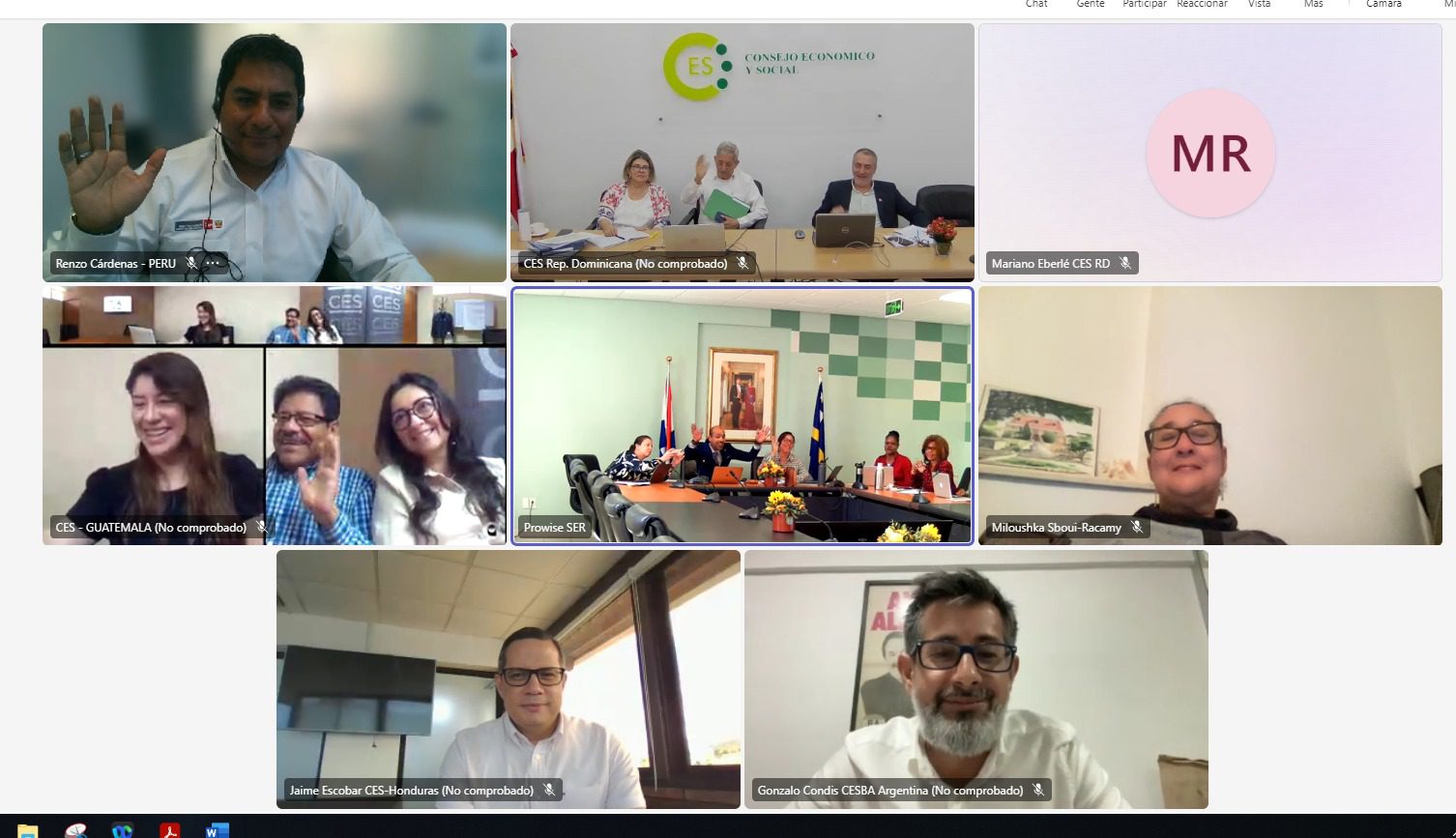Press release
Informal labor remains a persistent challenge in Latin America and the Caribbean:
CESISALC seeks solutions
Willemstad, October 24, 2024 — Nearly 60 percent of workers in Latin America and the Caribbean are employed in the informal economy, where access to social protections and labor rights remains scarce. Around 25 percent of the population lives in poverty, and only 53 percent have access to the internet, with significant disparities between urban and rural areas.
These pressing issues were the focus of a virtual meeting held on Tuesday by CESISALC, a regional network of socioeconomic advisory councils. Led by the Social and Economic Council (SER) of Curaçao, the meeting brought together representatives from Argentina, Guatemala, Honduras, Peru, and the Dominican Republic, among others.
Participants explored reforms aimed at reducing the informal economy and providing greater protections for vulnerable populations. Discussions centered on improving social safety nets for women, youth, the LGBTQ community, and Indigenous groups. A representative from Peru’s National Labor and Employment Promotion Council (CNTPE) emphasized the need for stronger collaboration. “Without cooperation, the most vulnerable will remain invisible,” the representative warned.
The meeting also addressed the region’s rapid digital transformation. Previous CESISALC discussions have highlighted both the opportunities and risks posed by artificial intelligence (AI). “Technological advancement can drive economic growth, but without proper regulation, there is a risk of exacerbating exclusion,” participants noted.
CESISALC’s expansion was another key agenda item. The socioeconomic advisory body of Argentina’s Salta province was recently welcomed as a new member, and talks are underway with potential members from Mexico and Chile, all aimed at strengthening the network and advancing socioeconomic progress.
CESISALC will convene again in February 2025 for an in-person meeting in La Antigua, Guatemala, where members will review the progress of ongoing initiatives. Since September 2023, the SER of Curaçao has chaired the regional network.



